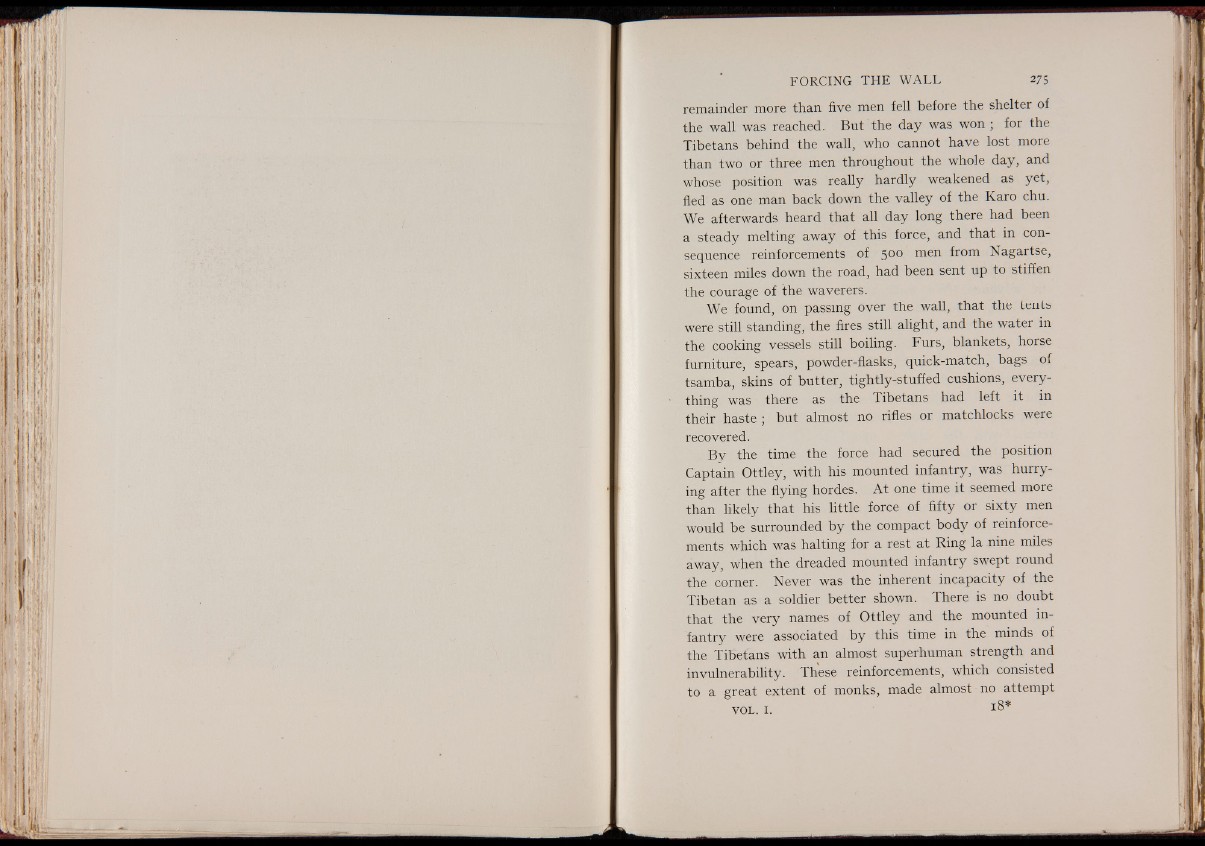
iè
il
| ì
Si
f|) i)
li ì
[111
i l
ili
Jll I ;
iff
IMI
IH
l i
1
É S l
remainder more than five men fell before the shelter of
the wall was reached. But the day was won ; for the
Tibetans behind the wall, who cannot have lost more
than two or three men throughout the whole day, and
whose position was really hardly weakened as yet,
fled as one man back down the valley of the Karo chu.
We afterwards heard that all day long there had been
a steady melting away of this force, and that in consequence
reinforcements of 500 men from Nagartse,
sixteen miles down the road, had been sent up to stiffen
the courage of the waverers.
We found, on passing over the wall, that the tents
were still standing, the fires still alight, and the water in
the cooking vessels still boiling. Furs, blankets, horse
furniture, spears, powder-flasks, quick-match, bags of
tsamba, skins of butter, tightly-stuffed cushions, everything
was there as the Tibetans had left it in
their haste ; but almost no rifles or matchlocks were
recovered.
By the time the force had secured the position
Captain Ottley, with his mounted infantry, was hurrying
after the flying hordes. At one time it seemed more
than likely that his little force of fifty or sixty men
would be surrounded by the compact body of reinforcements
which was halting for a rest at Ring la nine miles
away, when the dreaded mounted infantry swept round
the corner. Never was the inherent incapacity of the
Tibetan as a soldier better shown. There is no doubt
that the very names of Ottley and the mounted infantry
were associated by this time in the minds of
the Tibetans with an almost superhuman strength and
invulnerability. These reinforcements, which consisted
to a great extent of monks, made almost no attempt
v o l . 1 . I 8 *